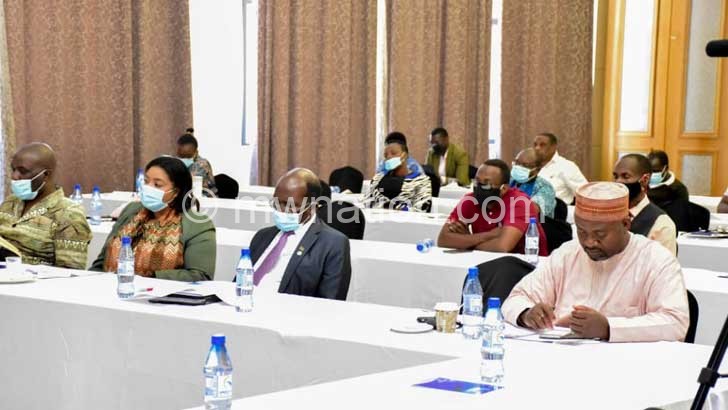Fresh calls on presidential candidates’ qualifications
Some delegates to an electoral reforms review conference in Lilongwe have revived proposals to include in the country’s laws presidential candidates’ qualifications and the use of some local languages in Parliament.
But other delegates expressed reservations with the use of other languages besides English in the House, saying parliamentary deliberations are serious business that should not be watered down by translating budget documents into vernacular languages.
The two-day meeting that ended on Friday was organised by the National Initiative for Civic Education (Nice) Trust.
Some of the proposals are contained in a 2007 Constitutional Review Conference report by the Law Commission which is yet to be entirely adopted by Parliament.

Other issues included a proposed Constitutional (Amendment) Bill on adoption of 50-plus-one percent electoral system, reinstatement of the recall provision for members of Parliament (MPs), a president changing political parties after election and a review of constitutional bodies such as the Office of the Ombudsman and the Malawi Human Rights Commission(MHRC).
In his contribution to the debate, Malawi Electoral Commission(MEC) regional elections officer (South) King Rudi said there is need for a proficiency test for presidential candidates as is the case with MPs.
He added that a minimum age of 35 and nationality are not enough qualifications for one to run in the presidential office, arguing that the country runs a risk of appointing a “joker” to occupy the State House.
Said Rudi: “he challenge is the process of choosing a President is attracting ‘jokers’. They satisfy other requirements like paying nomination fees and getting signatures and the electoral commission has no basis to reject that candidate.”
The Law Commission report recommended at least a bachelors degree for one to run for office of President.
Weighing in on the issue, Henry Chingaipe from Institute for Policy Research and Social Empowerment, who was one of the conference moderators, observed that the emphasis on fluency in English started with former president Hastings Kamuzu Banda.
He said: “This is a carryover law. There was a time when many MPs could not speak English and in 1978, Kamuzu dissolved Parliament because he felt embarrassed. We have carried it over. We need to think about it.”
But Centre for Multiparty Democracy executive director Kizito Tenthani said English language is not only a medium of communication but a telltale sign of capabilities.
He said what is important is for the parliamentarian to be able to appreciate the issues being deliberated.
“If one can do better by speaking Yao, does he have the capacity to understand budget documents or international relations?” queried Tenthani.
On his part, a People’s Party representative Ibrahim Matola stressed that the duties assigned to MPs cannot be done in vernacular language, saying legislators are expected to effectively engage with important people such as donors.
The aim of the meeting was to review Electoral Law reforms and chart a path for their adoption before the next tripartite election.





